Animal Physiology
Animal physiology is the scientific study of animals' or their components' life-sustaining qualities, functions, and processes. Temperature, blood flow, and hormone regulation are just a few of the main homeostatic mechanisms covered by this discipline. Animal physiology and biology (often known as zoology) is a broad field of study in the biological sciences that deals with the structure and function of animals as well as how they interact with their surroundings. Animal physiology is the study of how animals’ function and the basic processes that allow animals to live. From membranes to organelles, cells, organs, organ systems, and the entire animal, these processes can be investigated at various levels of organisation. Animal physiology is the study of how biological processes work, how they operate in different environments, and how they are regulated and integrated. Animal physiology is intertwined with anatomy (the relationship between function and structure) and the fundamental physical and chemical laws that govern both living and non-living systems.
- Animal Anatomy
- Animal Biochemistry
- Animal Biology
- Animal Hormones
- Fish and Other Aquatic Non-Mammals
- Zoology

Marco Polettini
DVM, Italy
Andreia Freitas
INIAV/REQUIMTE, Portugal
Andreia Freitas
INIAV/REQUIMTE, Portugal
Kedibone Gloria Kgosana
Sefako Makgatho Health Sciences University, South Africa
Nnenna Ugwu
Anglia Ruskin University, United Kingdom
Rubens Dias de Melo Junior
Universidade Federal de Goiás, BrazilSubmit your abstract Today
Important Alert:
X


Title : Analyzing veterinary medicine residues in food: A comprehensive guide
Andreia Freitas, INIAV/REQUIMTE, Portugal
Title : Quantifying changes in facial expression following hot-iron disbudding under procaine hydrochloride and meloxicam treatment in Holstein dairy calves
Nnenna Ugwu, Anglia Ruskin University, United Kingdom
Title : Trypanosoma vivax in and outside cattle blood: Parasitological, molecular, and serological detection, reservoir tissues, histopathological lesions, and vertical transmission evaluation
Rubens Dias de Melo Junior, Universidade Federal de Goiás, Brazil
Title : Characterization of porcine rotaviruses in the Czech Republic
Romana Moutelikova, Veterinary Research Institute, Czech Republic
Title : Determination of Circulating Foot-and-Mouth Disease Virus Serotypes in Kenya (2023)
Hellen Mutua, Foot and Mouth Disease National Reference Laboratories, Kenya
Title : Welfare for Amazonian wild animals
Eliane Cardoso Carvalho Moraes, Jungle Warfare Training Center/ Army, Brazil